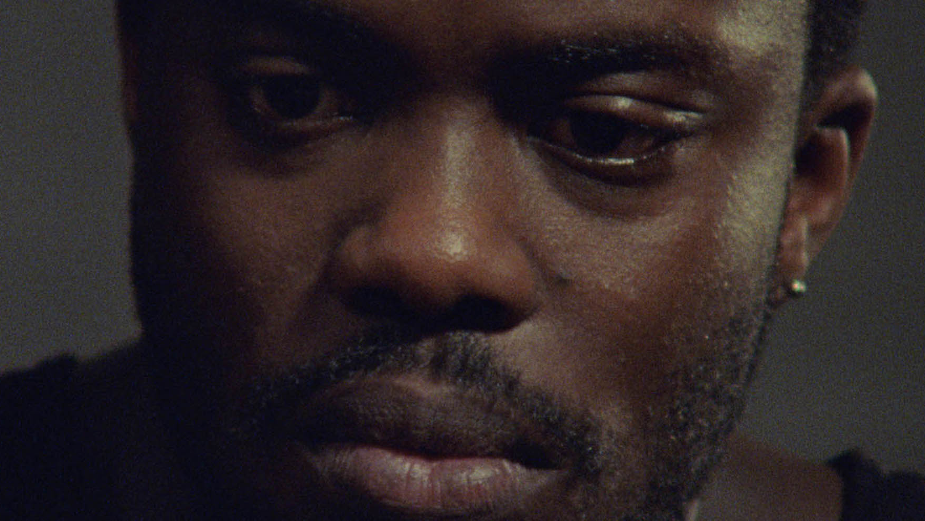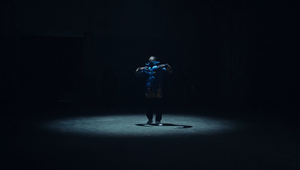
LBB Film Club: Play It Safe

Play It Safe, the debut short from director Mitch Kalisa, recently won both the Jury and Audience Awards for Narrative Short at SXSW, making it the first British win in this category for a decade.
An imperative to reflect on race, set in the ‘safe’ environment of a middle-class, predominantly white drama school, the story is tense and immersive, with levels of realism that come from similar experiences in both Mitch and lead actor Jonathan Ajayi’s lives.
London production company COMPULSORY have been developing the short with Mitch for a number of years, shooting right before the first UK lockdown of 2020 due to the coronavirus.
Bowled over by the impact the film made, LBB’s Alex Reeves asked Mitch a bit more about what was behind Play It Safe.
LBB> When did you first start to think about making this film? What were your initial ideas?
Mitch> I’ve been thinking about this since I was about 15. I used to attend weekend drama workshops at a prestigious drama school and animal studies were part of the course. In that situation, I was hyper self aware of what it meant for a Black person to perform like an animal in front of a mostly white audience. Even though my experience was not like Jonathan’s in the film, the prickly racial politics and subjective experience of that moment always stayed with me.
LBB> What informed or guided your decision to situate this story about racial politics and identity in such a ‘safe’ middle-class environment?
Mitch> Because I’ve got so much personal experience of these issues, in that context. As a Black man who works in the ad industry, it’s not uncommon to navigate the same kind of racial and class issues that Jonathan goes through in the film.
LBB> What were the main considerations or decisions you made while developing the script?
Mitch> I think that racial politics in the media are represented at their most base level. They are far more complex and nuanced than people who are not subject to them perceive. The characters in Play It Safe aren’t cross-burning football hooligans or fist-waving corporate types; they are well intentioned, well educated and generally nice people. However, due to their unconscious bias they almost can’t help but marginalise Jonathan.
My main consideration was to not create basic character representations. I didn’t want to make the white characters racist caricatures. Likewise, I didn’t want to make Jonathan a victim with no agency.
LBB> What was it about Jonathan Ajayi that made him so right for the role?
Mitch> Jonathan Ajayi is an incredible actor and it truly was an amazing experience to work with him. He was perfect in the role, and instinctively understood the nuance of the story. As a performer he carried the duality of the character so comfortably; the approachable and sensitive personality we see at the start and then the broody and intimidating personality at the end.
LBB> The performances are so raw but full of all the nuance of British identity, both racially and along class lines. What were your priorities in making sure that complexity was there? I can think of a couple of decisions that the power of the film pivots on and they're delivered just right.
Mitch> For me a lot of that complexity is achieved through cinematic language - especially in the last sequence of the film. In that sequence if we had simply watched Jonathan’s performance, the film would have become about that. However, because we don’t really see him, but are forced to watch the classmates, the film opens itself up for audience interpretation. In a way, it leans into a more subjective experience of Jonathan’s emotions at that point, but in another way the perspective acts as a mirror; one audience watching another. There are a lot of interesting thoughts and ideas that happen in that ambiguity.
LBB> What have been the most interesting reactions to the film?
Mitch> The most interesting reactions have come from people who have recognised themselves in the characters of classmates and the teacher. One response said something along the lines of ‘this has really made me question a few things on a personal level’. These types of responses have been really powerful to hear. I wanted the film to provoke conversation, but to know there’s been that kind of impact for some people is really inspiring.
LBB> How did you feel when you found out it won the Grand Jury Prize at SXSW? Especially being the first British filmmaker to win in the category for over a decade. What does it mean to you?
Mitch> I was simply in shock. I was already over the moon with being selected, but winning was completely unexpected and incredible. I only found out about that fact in this interview to be honest. It’s just surreal to think about, but I do feel proud and honoured.










